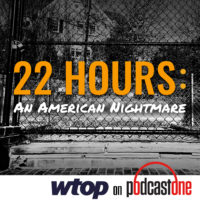
Over the last several years, the radio industry’s approach to podcasting has changed. Several years ago, a lot of podcasts were started by on-air talent looking for additional creative outlets beyond their regular shows. Often, they would launch their podcasts without anybody from the programming department knowing or caring, let alone anybody from the sales side of the building.
As radio stations realized that podcasting was a growing and important medium, their first forays into it often involved repurposing on-air content. For public radio, this was relatively easy. No major changes need to be made to an episode of Wait Wait…Don’t Tell Me! or Fresh Air before posting it online. For commercial radio broadcasters, however, this wasn’t always the case. Shows that play music couldn’t legally include songs in their podcasts, while repetitive elements like saying the call letters aren’t well-suited to on-demand audio. Still, some talk morning shows would post their entire shows online, while others might cut up benchmark features into episodes, and others would go into the studio to record an extra hour of “bonus” content.
Increasingly, however, radio broadcasters are realizing that while a lot of their audio skills are transferable, podcasts are often significantly different from radio shows — especially radio shows on music stations — and they require content created specifically with podcasting in mind. Of course, once a radio company realizes that they’re going to have to make more audio content above and beyond what they’re already putting on their airwaves, the question becomes: Who’s going to do this?
 With other advances in technology, such as the rise of video on platforms like YouTube, or the ability to write blogposts and social media updates, the answer was obvious: each station would be responsible for creating their own content. With podcasts, however, the answer isn’t quite as obvious. After all, a podcast has the potential to go national or even global in the way that most other digital content from radio stations are unlikely to do. If a station can produce a podcast that become a phenomenon beyond its geographic footprint, like WTOP’s 22 Hours: An American Nightmare or Michigan Radio’s Believed, how should radio company’s allocate its podcast producing resources?
With other advances in technology, such as the rise of video on platforms like YouTube, or the ability to write blogposts and social media updates, the answer was obvious: each station would be responsible for creating their own content. With podcasts, however, the answer isn’t quite as obvious. After all, a podcast has the potential to go national or even global in the way that most other digital content from radio stations are unlikely to do. If a station can produce a podcast that become a phenomenon beyond its geographic footprint, like WTOP’s 22 Hours: An American Nightmare or Michigan Radio’s Believed, how should radio company’s allocate its podcast producing resources?
In short, should the people who are in charge of churning out podcasts work at the corporate level, or at the individual station level?
Yes.
There are compelling reasons for producing both corporate-level and individual station-level podcasts. A company may want to do a mix of both, in which case the key will be figuring out which podcasts should be produced at which level. Here are some factors — some obvious and others less so — to consider when deciding where podcast production responsibilities should lie:
1. The company’s geographic footprint.
Too often, radio broadcasters assume that what works for the big guys will also work for the little guys. That’s unlikely to be true when it comes to podcasts. A radio company that owns hundreds of radio stations across the country will have a much easier time launching a podcast that can generate millions of downloads simply by leveraging the promotional power of its stations. It’s not impossible for a smaller broadcasting company, but it is a tougher climb. A large company should probably produce more of its podcasts at the corporate level, while a smaller company should probably invest in more station-level podcasts.
2. The appeal of the topic.
Naturally, a podcast which appeals to people throughout the country is better suited for corporate-level production. A podcast which is only likely to appeal to people in a specific geographic area is better suited for station-level production. For example, a podcast about a sports team should probably be produced by the local radio station.
3. The appeal of the hosts.
One of radio’s biggest assets is the power of its on-air talent. Some personalities, like D.L. Hughley or Dave Ramsey, have cultivated a national fanbase, while other on-air talent has remained local. Naturally, this is a factor in which podcasts are best produced at which level.
4. The revenue model.
Believe it or not, there’s more than one way to monetize a podcast. As broadcasters, we tend to assume that the key to profitability is to attract a large audience and then sell ads in the show. But there are alternative ways to make money from podcasting — such as branded podcasts — that could prove more lucrative for radio companies. While a branded podcast for Nike or Gatorade should be produced at the corporate level, branded podcasts for local or regional clients should be produced at the station level.
5. Who can sell it.
Should you have a dedicated sales team that specializes in podcasts? Or should podcasts be just one of many things that your sales staff has the ability to pitch to clients? Who should create podcasts may depend on who can successfully sell podcasts. If the sales staff at individual stations aren’t seeing interest in podcasts from local clients, there may be little need to produce podcasts at the stations.
It’s not an either/or question. For radio broadcasters, a successful podcasting strategy will require finding the right mix of podcasts created at the local and corporate level. To do so, carefully consider the medium, and determine what types of shows should be produced by which people within your company.

This month, we’re hosting the “Broadcasters Meet Podcasters” track at the Podcast Movement conference in Orlando.
- A Simple Digital Treat to Thank Your Radio Listeners This Thanksgiving - November 13, 2023
- Interview Questions When Hiring Your Radio Station’s Next Digital Marketing Manager - November 6, 2023
- A Radio Conversation with ChatGPT: Part 2 – Promotions - October 30, 2023





Leave a Reply